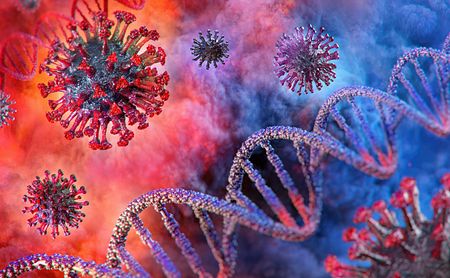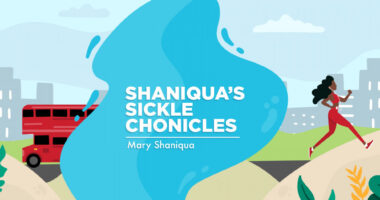COVID-19 Vaccines Pose Little Risk to Rare Disease Patients, FDA, CDC Say

The two COVID-19 vaccines that recently received emergency approval from the U.S. and other worldwide regulatory agencies are expected to pose little risk to the rare disease community, including to patients with compromised immune systems or those participating in gene therapy studies.
That was the message of a recent webinar, hosted by the National Organization for Rare Disorders (NORD), in which officials from the U.S. Food and Drug Administration (FDA) and the Centers for Disease Control and Prevention (CDC) addressed concerns from the rare disease community regarding the newly available COVID-19 vaccines.
The webinar was sponsored by the ALS Association, the Cystic Fibrosis Foundation, and the Muscular Dystrophy Association.
People living with rare diseases have faced unique challenges to their physical and emotional well-being during the ongoing COVID-19 pandemic and its related lockdowns.
According to a survey conducted by NORD, most of the respondents (98%) worry about the impact of COVID-19 on their disease, and more than two-thirds (69%) also have concerns about shortages of critical medicines and personal protective equipment. Notably, 79% of those surveyed have had medical appointments canceled as a result of the pandemic.
The FDA recently granted emergency use authorization to two COVID-19 vaccines: the Pfizer and BioNTech vaccine for individuals ages 16 and older, and the Moderna vaccine for those 18 and older. To date, 10-12 million doses have been deployed, the officials said.
These emergency use authorizations significantly shorten the normally long approval processes for new medications and allow them to enter the market more quickly, but usually with less evidence. However, Peter Marks, the director of the FDA’s Center for Biologics Evaluation and Research (CBER), made it clear that the evidence required for these COVID-19 vaccines was “very similar in many ways” to that of a vaccine approved through the normal process.
“They have clear and compelling evidence that they are safe and effective. They were studied in large trials, one in 44,000 patients, approximately, the other in 30,000 patients, approximately,” explained Marks, who is board certified in internal medicine, hematology, and medical oncology.
There is some uncertainty — albeit little — surrounding COVID-19 vaccine use specifically in patients with rare diseases. This stems primarily from the challenges of finding sufficient numbers of people with such disorders to participate in vaccine trials.
“It is really hard to study vaccine efficacy and safety in one rare disease, because we just don’t have enough people with those diseases to come to significant conclusions,” said Stephen Hahn, the commissioner of the FDA.
Still, based on the evidence to date, the FDA does not feel concerned that the COVID-19 vaccines will cause any harm to those with a rare disease — including those with a compromised immune system — Marks said.
The bigger question, he said, is whether they will be as effective among this population. At this point, scientists don’t know for sure the answer to that question.
But since many people with rare diseases — particularly those with any form of respiratory compromise or diabetes — are at risk of more severe COVID-19 infections, “the benefit may outweigh the risks,” Marks said. He stressed the importance of patients discussing the individual benefits and risks of the vaccines with their own healthcare providers.
With some in the rare disease community hoping to access gene therapies in the not-so-distant future, patients have expressed concern about the risk of being unable to access these medications after receiving the vaccine, due to the development of antibodies against the viral vector.
Marks said this should not be an issue, noting that the vaccines “are packaged essentially in a soap bubble, and the soap bubble is not like … any of the adeno-associated viruses that are being used for directly administering gene therapy, nor is it like any of the other vectors that are being used.”
“The likelihood of something happening here, where one of these vaccines would preclude you from getting a gene therapy, is pretty much non-existent,” he said.
When asked whether the rare disease community should choose one of the COVID-19 vaccines over the other, Marks explained that they are similar vaccines, with very close dosage schedules.
“Right now, whatever you can get in your arm in a timely manner, that’s the vaccine that’s the best,” he said.
The two available vaccines both use messenger RNA (mRNA) — the intermediate molecule that carries information from the DNA to produce a protein — to teach cells how to make viral proteins that trigger an immune response to SARS-CoV-2, the virus that causes COVID-19.
Both vaccines have shown 94-95% efficacy, meaning that they have prevented that percentage of patients from becoming infected, relative to placebo treatments. By comparison, the annual influenza vaccine is typically about 70% effective.
The two COVID-19 vaccines also showed strong safety profiles, with allergic reactions occurring on the order of one in 100,000 individuals or less. Notably, the reactions that did occur appeared to be triggered by one of the vaccine components, which Hahn says both the FDA and CDC are investigating.
“For all intents and purposes, these are very similar vaccines,” Marks said, adding “I cannot say that one is better than the other.”
In the very rare case that someone does experience an allergic reaction, Amanda Cohn, chief medical officer in the Office of Vaccine Policy at the CDC, says that vaccine administration sites are trained and equipped to handle the situation, with necessary medications on hand. The CDC recommends waiting 30 minutes after receiving the injection so that any symptoms that do arise can be promptly treated.
Cohn also addressed the concern of who gets vaccinated, and when and where. Cohn said that local jurisdictions can exercise flexibility in these decisions, as they best know how to serve the needs of their individual communities. Information about available vaccinations can be found on state health department websites and directly from most large healthcare systems; many municipalities also are offering the vaccine through their health and emergency services agencies.
A final concern that the panel addressed was that of the new SARS-CoV-2 variants, such as the one recently discovered in the United Kingdom. Although this virus appears to spread faster than other strains, the current vaccines so far appear effective against it, Marks said.
“More troubling,” he said, “is a South African variant, which may be less well-covered.”
While both the FDA and CDC continue to gather information on this new variant, Marks commented that even if vaccines have to be adjusted for this or other new strains, public health agencies will be better prepared, and able to produce a vaccine without having to spend four to six months in clinical trials.
“What I think we’ve all learned, all of us living in COVID-19 this year, is that we have to just prepare for the unexpected,” Marks concluded.
The full recording of the webinar is available online. Registration to access the video is free and can be done here.






